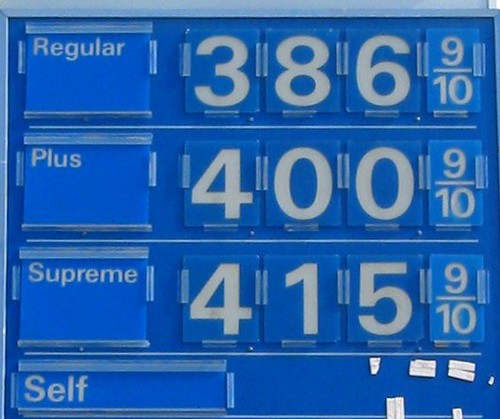 Although falling gas prices have boosted SUV sales over the last couple of months, fuel efficiency will continue to be a priority for most car buyers over the next few years, according to a new study. The Consumer Federation of America (CFA) conducted a survey among motorists across America to find out whether they expect gasoline prices to stay low in the long run and whether fuel efficiency is still an important factor for them.
Although falling gas prices have boosted SUV sales over the last couple of months, fuel efficiency will continue to be a priority for most car buyers over the next few years, according to a new study. The Consumer Federation of America (CFA) conducted a survey among motorists across America to find out whether they expect gasoline prices to stay low in the long run and whether fuel efficiency is still an important factor for them.
What the CFA found is that the majority of car buyers will not be fooled by the fact that gas prices are currently at a record-low and will prefer high-mileage vehicles in the future, as well, expect gas prices to start rising soon. According to the survey, U.S. consumers are well aware of the volatility in gas prices, expecting them to climb over 50% in a couple of years. The CFA surveyed 1,007 randomly chosen adult Americans, who said that they expect the national average price for a gallon of gasoline to reach $3.20 in two years, and climb to $3.90 in five years. This is a significant increase over the current average of $2.15 per gallon.
Moreover, 86% of the people surveyed by the CFA said that fuel economy will be an “important” factor in their next car-purchase decision-making process, and 57% of them said it will be “very important”. “There’s a good reason why today’s car buyers still believe fuel efficiency is important—they understand that gas prices always go back up,” said Jack Gillis, CFA director of Public Affairs and author of The Car Book.
“Buying an inefficient vehicle during periods of low gas prices condemns the consumer to wider swings in monthly costs, much higher monthly peaks and a whooping overall increase in lifetime gas costs,” said Mark Cooper, director of research at CFA.
Also, CFA researchers analyzed how average monthly costs were affected by fuel efficiency between 2009 and 2013, when gas prices were going through a few swings. They found that over the course of those 5 years, drivers owning a 25-mpg vehicle spent a total of $9,660 on gasoline, significantly less than what those who owned 15-mpg vehicles spent, with a 5-year total of $16,080. This means that those driving a 15-mpg vehicle spent over $6,000 more than those driving a 25-mpg vehicle over a five-year period.
Finally, most of the participants in the CFA survey said that they would like their next vehicle to have an average fuel economy of 30 mpg. The chances for that to happen are pretty good, considering that there is a wide array of fuel-efficient vehicles on the market now, and that automakers are building more high-mileage vehicles, amid tightened fuel efficiency standards.
The results of this survey show that consumers are prepared for a potential spike in gas prices in the following years. This is a very likely scenario given the consensus among observers of the petroleum industry, who are confident that gasoline prices will not stay at these low levels for much longer.